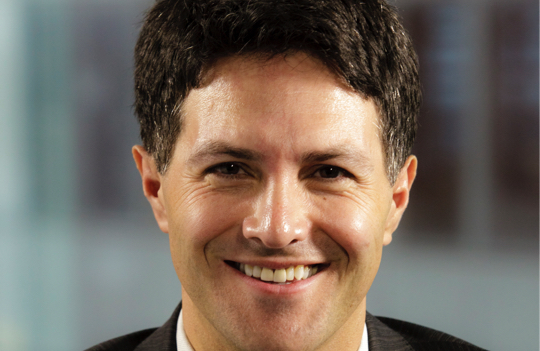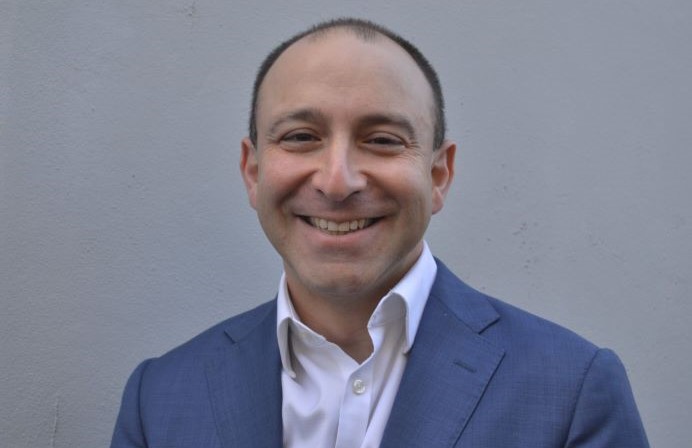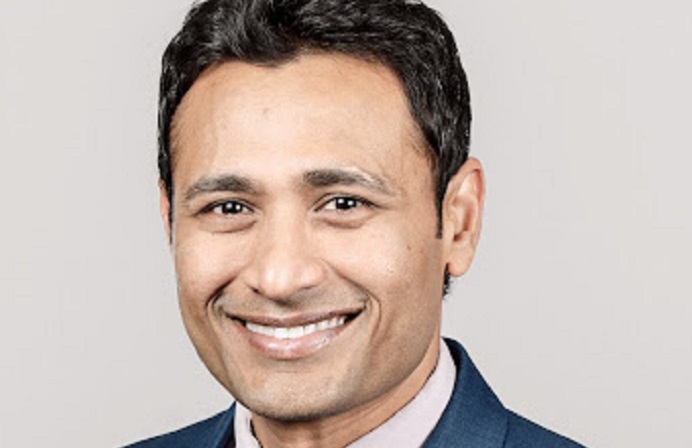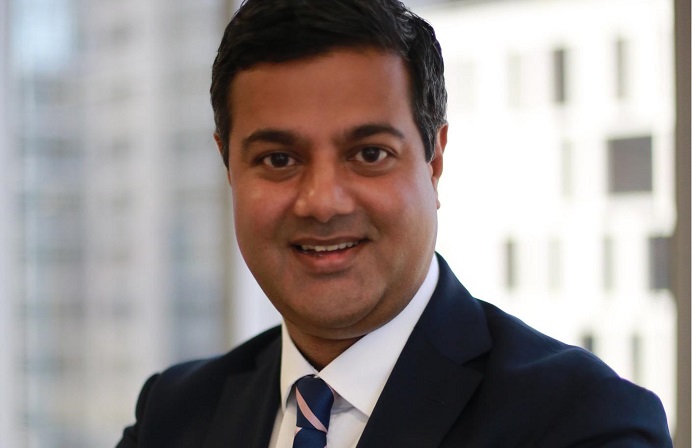
“I think we’re at an amazing confluence in history for technological innovation… Smart governments need to understand and embrace the future and, if they don’t, they’re going to be left behind.”
Minister Victor Dominello has been at the forefront of arguably the most well progressed and innovative digital government in Australia. Appointed minister for the newly created and expansive Customer Services portfolio, Dominello has declared this ministerial coup the “most significant machinery of government change” enacted since his first appointment to Cabinet eight years ago.
Coming off the back of the NSW Government’s recently announced whole-of-gov digital innovation committee, DAPCO, we speak with Minister Dominello on how the new Customer Service ministry is redefining the state’s digital agenda and what this “fundamental change in dimension” could mean for its highly regarded citizen service portal, Service NSW.
FST Government: One of the key initiatives of the newly formed Customer Service Ministry has been the creation of a new senior working committee, ‘DAPCO’, which amalgamates several discrete committees into a single body tasked with assessing the delivery and performance of digital initiatives across government. How do you feel will DAPCO serve to facilitate innovation, improve digital service delivery, and further integrate government services?
Dominello: The beauty of DAPCO is that, if there is a new initiative coming up from a given agency that is ultimately on a journey to seek money from Treasury and then political approval from Cabinet, before it gets there, it’s going to have to go via DAPCO.
Within DAPCO, we’ll then ask some fundamental questions to improve delivery: for example, ‘Is the data architecture correct?’ ‘Is a digital design correct?’ ‘Is it customer or citizen focus-centric or are we forcing the people of our state to jump through various hoops telling governments several times? That’s where DAPCO can focus its attention on, making sure we deliver good outcomes for the citizen.
FST Government: You’ve acknowledged the considerable challenges that citizens face when interfacing across multiple government agencies, particularly for individuals seeking emergency assistance. How can the NSW Government ensure a more integrated, holistic service offering (perhaps building on Service NSW’s one-stop-shop model), and overcome an inherent tendency to silo and contain data flow?
Dominello: There will be instances where it’s important to have segregated silos and separation. But, more often than not, it’s probably going to be much better for the citizen or the customer to say, “no, I want that ‘tell me once’ approach; I want less interface, less interaction, less time spent with government completing forms and the like. Because, at the end of the day, what I want is a better service and therefore a better outcome for me.”
Ultimately, we need to get more service delivery through our front gate, Service NSW, which has an exemplary culture for service delivery. That’s one thing where we can drive more transactions, more service delivery, and more new ideas through service. Because, obviously, the people of our state have continually given very positive feedback about it – Service NSW is seen not just as nation-leading but world-leading. Another proposal would be if there is an idea that can’t go through Service NSW, we should ask, is there a lead agency, for example in domestic violence or homelessness, that should take the lead and make sure that they triage all relevant data – subject, of course, to privacy and security provisions – to make sure that there is a simple and easy way for people of our state to engage with the services being delivered?
FST Government: Alongside the journey to service integration is the progressive push by many governments ‘personalise’ customer journeys. Speaking at the FST Government NSW event earlier this year, Estonian Government representative Andrus Kaarelson went further, revealing their agencies’ capacity to predict customers’ demands before they even approach a service department. How realistic a pursuit is ‘predictive services’ for the Berejiklian government?
Dominello: If – or perhaps when – we get to that point, then I think we’d be well in advance of most other jurisdictions.
If you look at some of the offerings that exist in the private sector now, such as music platforms like Spotify, this is where people are saying “Wow, this is a product that is given to me where they understand what I want, what I like, what I dislike, and what I need.” And, generally speaking, platforms like that are getting more and more credibility and gravitation, because rather than people looking for things in a haystack, we have the smarts to give people what they want. Ultimately, provided the trust is in the system, and people have the option of opting in and opting out, and privacy’s locked down, then that’s a great place for government to look to provide services.
FST Government: Is there a ‘silver bullet’ technology or regulatory framework that could be leveraged to drive these next-gen service capabilities forward?
Dominello: I think we’re at an amazing confluence in history for technological innovation. We’ve got 5G just about to roll out, which is 20 times faster than what you see now. We have quantum computing literally on our doorstep in the next five years. And we have AI moving at rapid pace. And then you’ve got experiences, such as mixed reality, starting to stand up on its own two feet. There is an amazing moment in human history where all these powerful things are coming together. I think smart governments need to understand and embrace the future and, if they don’t, they’re going to be left behind.
FST Government: You’ve said that one of your proudest achievements delivered in government has been Fuel Check – an online tool providing consumers with real-time information on fuel prices across the state. What made Fuel Check such a milestone for you?
Dominello: It was my petri dish. It was me saying that there was a problem for the customer, i.e. “Why should I drive around from petrol station to petrol station in a world where we have smartphones and where information is moving rapidly.” Why should we use the old ‘horse and buggy’ method of knocking on every door when, quite frankly, we should have it at our fingertips? Now, we did not have it at our fingertips, so I had to introduce legislation to get it there. And I needed to get it in a way that would produce confidence for the customer or citizen, because if we only had a bit of the data, then it’d be unreliable, and if it’s unreliable, no one would use it, and no one would rate it. But, because we did all the right things, and – again – the data design was there, the digital architecture was right.
We’ve now got more than 500,000 people in NSW using FuelCheck, and organisations, such as ACCC, saying it’s a great thing to assist in competition; small businesses, particularly smaller retailers on the side streets, have said FuelCheck is the best thing because it helps them compete on the world stage against the big shiny petrol stations.
If we could get that right, then we could get a whole lot of other things right. And that’s why I was proud of it, because the model stood up – our ability to effectively engage with the citizen, to provide an opportunity for feedback, give them more information, and put it up with an API so other users could use the data as well. It’s a tight little model that shows that if you design big and build small, you get some really good outcomes.
FST Government: And it’s obviously a model that could be easily replicated for other digital initiatives?
Dominello: It’s very easily replicable. Because, at the end of the day, data is at its heart – it’s getting information from service stations, which they have to provide anyway, getting it in real-time and, critically, giving it to the people of our state in real-time. If you empower people with more information, you empower them to make better decisions.
FST Government: You no doubt have a few digital projects in the pipeline. What existing or forthcoming digital initiative are you most looking forward to delivering?
Dominello: There are certainly a number in the pipeline – most remain under wraps at this stage. ePlanning for example, which we recently launched, was one initiative I took a particular shine to. I realised that if we could effectively digitise planning, it would have enormous positive ramifications for everyone –every agency, every person – because planning is at the heart of everything we do.
Councils like Sutherland, to their eternal credit, have now completely embraced the ePlanning system. And, on recent figures, rather than Development Applications (DAs) being approved in 80 days, their DAs are being approved in under 30. That’s just a small benefit; there are of course countless other benefits to digitising planning.
FST Government: You are among the Government’s fiercest advocates for data strategising and progressive digitisation of citizen services. More and more, data-driven ‘smart city’ initiatives are taking off across the globe, with many local governments introducing an array of internet of things (IoT) sensor technologies across their urban patches to improve urban planning and deliver better state services. What is the Berejiklian Government’s take on these smart city initiatives?
Dominello: We’re currently working through our next strategy, so watch this space. But again, the beauty of DAPCO – this can be inside the government – is that it enables us to focus our attention on smart design. So, for example, if somebody has a good idea to pursue a smart city format and an agency comes up with a proposal, if we can then challenge that proposal, and then say, “Hold it, Vancouver’s doing this. Tokyo is doing that. Why aren’t we also doing it this way?”
And it’s another example of why Clayton Barr (Shadow Minister for Innovation, Science and Tertiary Education) is right, with regards to every minister in government being responsible for digital transformation. Ultimately, though, you need to have a focal point to drive it; you need a captain, otherwise you’re going to have a team of individuals. And you need that captain to say, “We’re going to marshal around the customer, the citizen journey, the citizen experience and to make sure it’s optimised”.
FST Government: New South Wales undoubtedly earned its reputation as not only Australia’s but also one of the world’s leading digital governments. How can First State maintain its place as the premier digital state?
Dominello: Certainly, the machinery of government changes that we’ve made following the election in March this year are definitely unique to Australian politics and government structures and, to our knowledge, we can’t find another government around the world that’s got this ‘trinary solar system’ approach to delivery. I really believe that that takes us to the next dimension.





